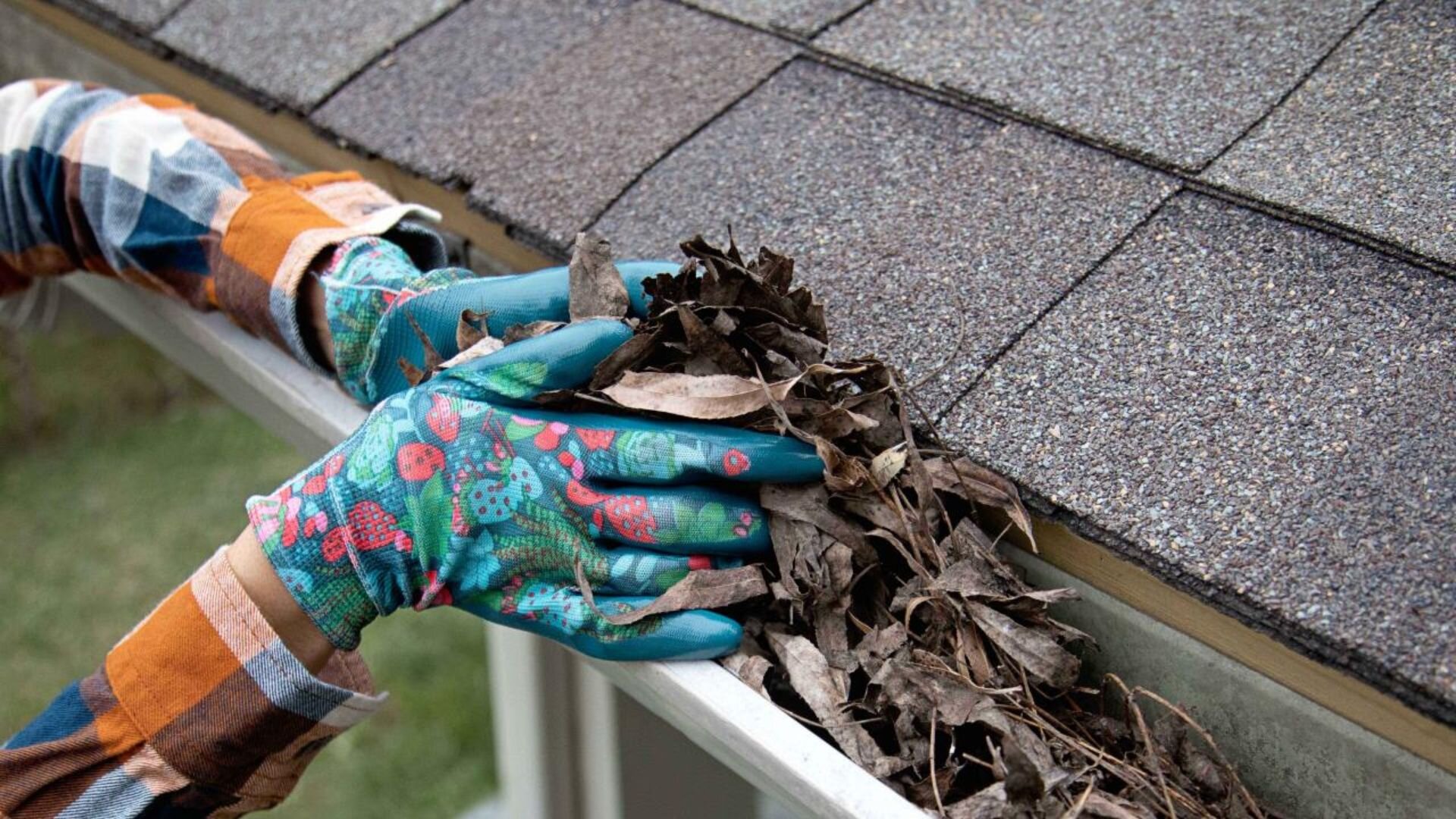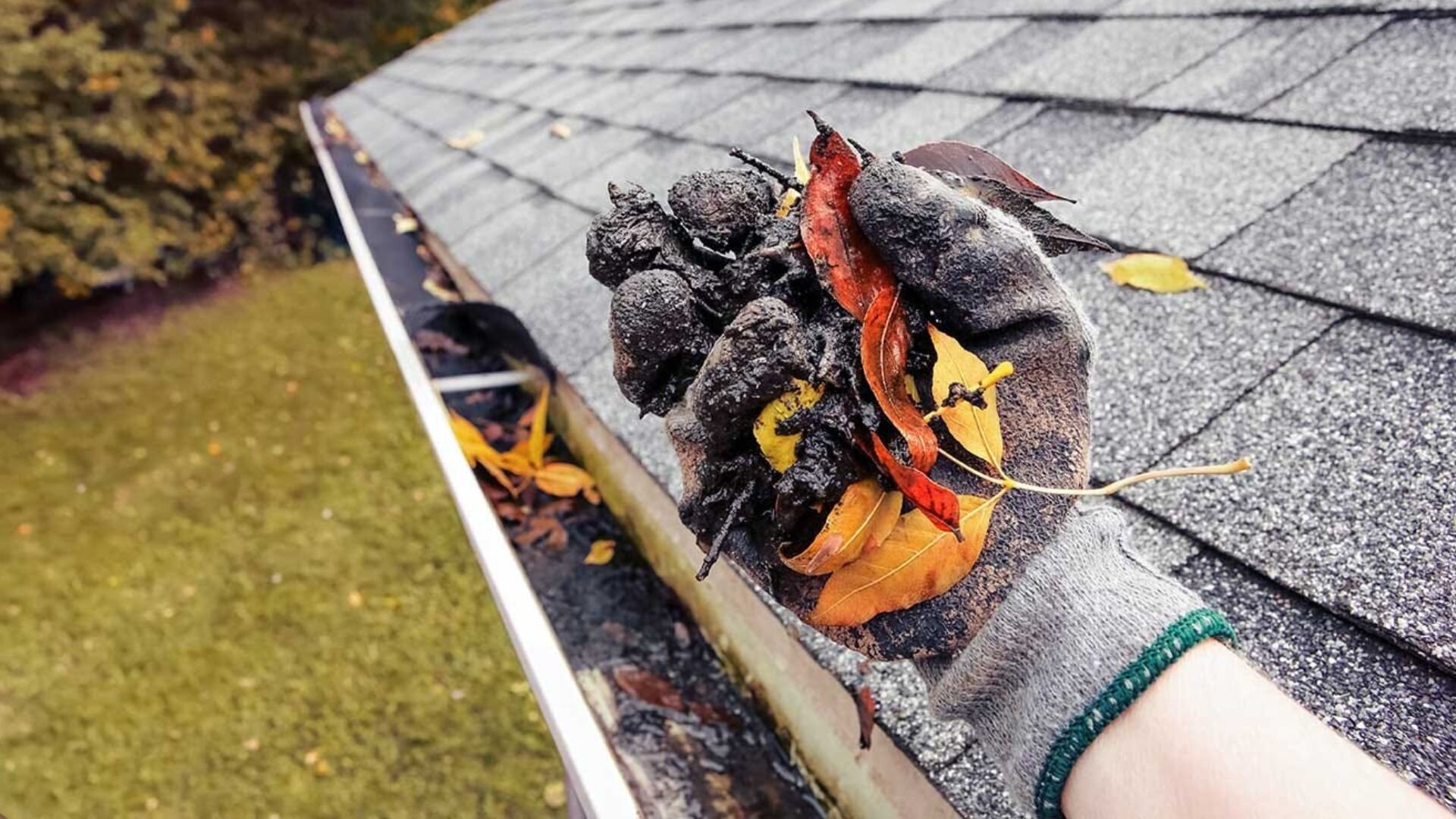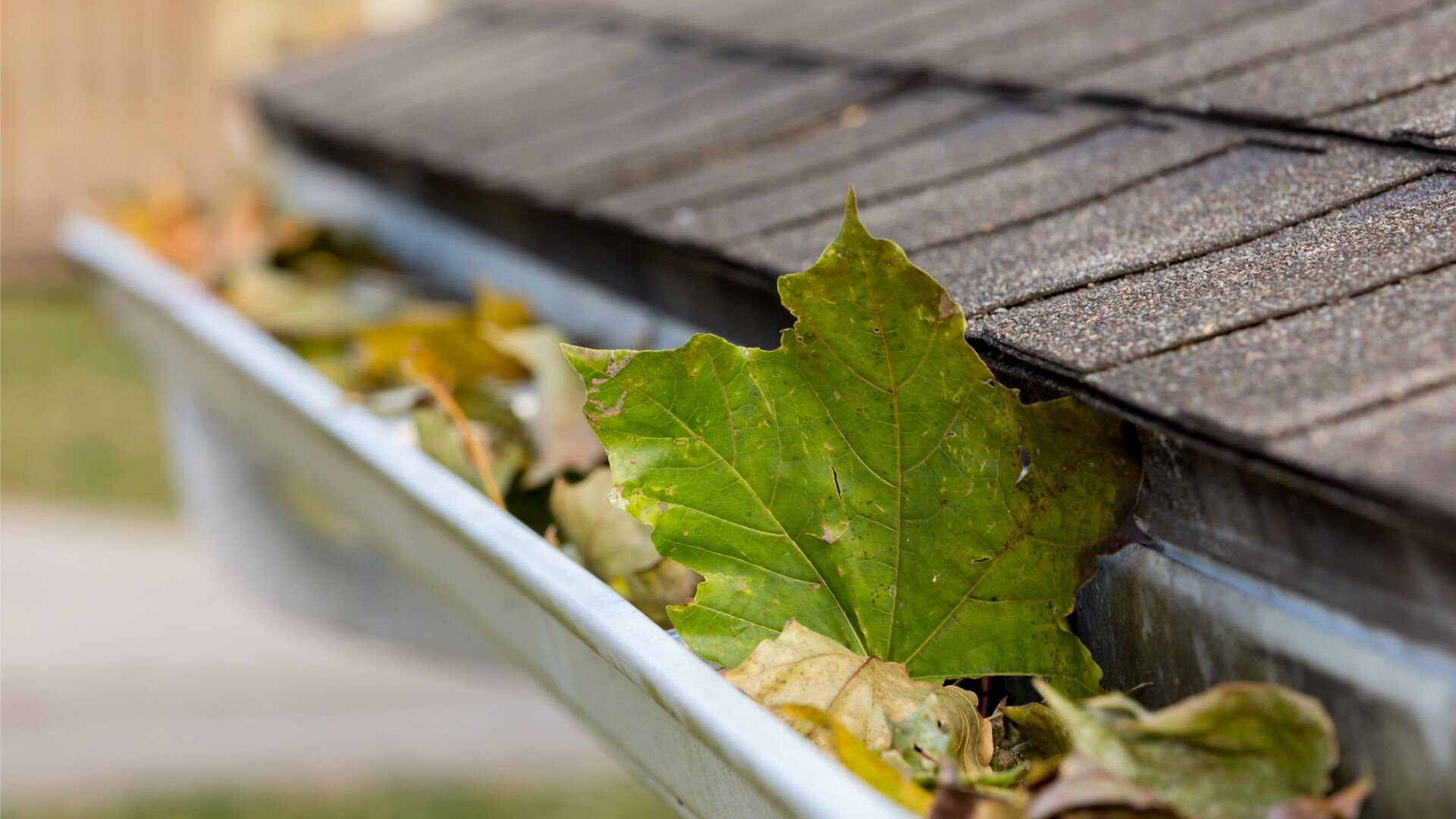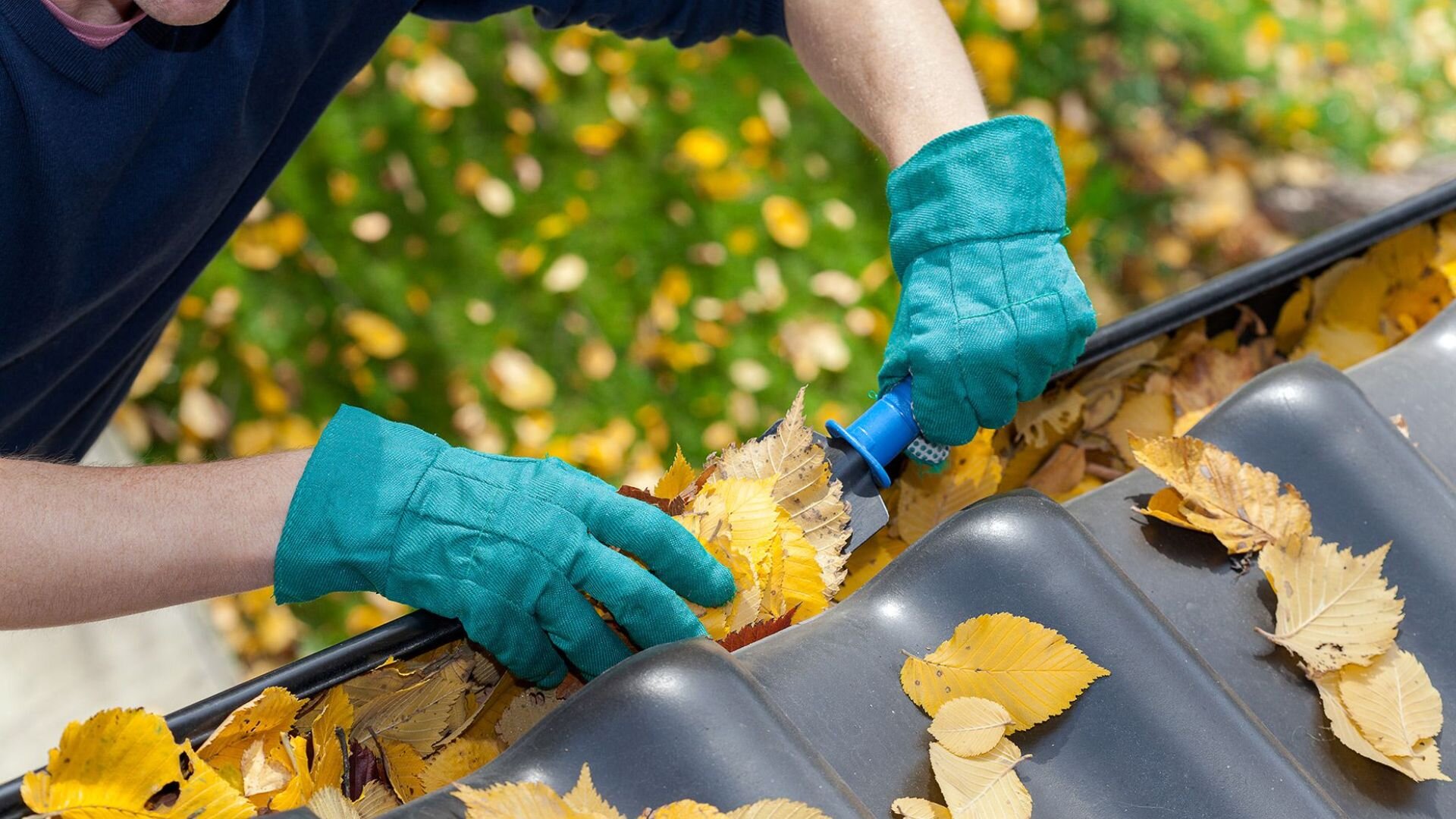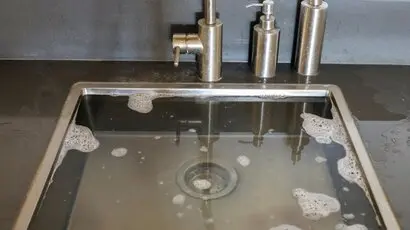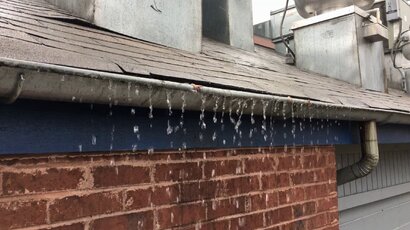![]()
Your home’s like your castle, and the gutters play a vital role in its defense. They shield your house from water damage. However, when they get blocked, issues arise, like overflowing gutters and roof leaks.
Thankfully, with some DIY tricks, you can tackle those gutter clogs. This guide covers everything from spotting blockage signs to easy cleaning hacks. So, how do you keep gutters clear? Let’s dive in and find out!
The Importance of Clear Gutters
Clogged gutters mean rainwater doesn’t have a proper escape route. This overflow can wreck your walls, seep into the foundation, and cause water damage. A blocked gutter can also weaken your roof, leading to leaks into your home’s interior.
![]()
The impact of clogged gutters extends beyond water damage. The stagnant water caused by blocked gutters can become a breeding ground for mosquitoes and other insects, leading to pest infestations. Also, the added weight of debris and water can cause gutters to sag or pull away from your house, leading to potential structural damage and costly repairs.
Regularly cleaning your gutters helps you avoid these problems. Routine maintenance keeps your gutter system working efficiently. By clearing debris, you maintain your home’s structure, ward off pests, and prevent roof leaks. This upkeep spares you time, money, and hassles in the future.
Signs of Blocked Gutters
Clogged gutters are usually easy to spot. There are several tell-tale signs that your gutters are blocked:
- Overflowing gutters during a rainstorm is one of the most obvious signs. If water spills over the sides during a downpour, your gutters will likely be clogged.
- Sagging gutters: The weight of accumulated debris and the water trapped in the gutter can cause your gutters to sag or pull away from the fascia.
- Stains on your walls: If you see water stains or peeling paint on your exterior walls, it could be due to water that has overflowed from a clogged gutter.
- Plant growth in the gutters: The accumulation of debris in your gutters can lead to a mini ecosystem, with plants starting to grow in the muck. If you see green sprouts or moss, it’s time to clean your gutters.
- Debris closer to your roof: If you see leaves, twigs, and other debris caught closer to your roof rather than in the gutters, it indicates that your gutters are blocked.
Proactive Measures to Prevent Gutter Clogs
Preventing clogged gutters is not as complex as it may seem. Here are some practical tips:
![]()
Regular Cleaning
Gutter cleaning should be part of your regular maintenance routine. Use a leaf blower to remove large debris and a garden hose to flush out smaller bits. Regular cleaning makes preventing clogged gutters easy.
Gutter Guards
Installing gutter guards prevents leaves and other airborne debris from entering your gutters. Gutter guards, also known as gutter screens or gutter covers, act as a filter, allowing rainwater to flow through while blocking debris. Consider hiring a professional to install gutter guards to ensure they are fitted correctly.
Trim Nearby Trees
Overhanging branches from nearby trees can drop leaves, twigs, and pine needles into your gutters. Regularly trim these trees to reduce the amount of debris that falls into your gutters.
Use a Leaf Catcher
A leaf catcher can be installed at the top of the downspouts to catch and collect debris before it enters your gutter system.
The Role of Professional Services
Even though there are many DIY methods for gutter cleaning, sometimes calling in the experts is the way to go. Professional services come with the right tools, training, and know-how to clean gutters safely and effectively. They grasp the nuances of various gutter systems, offering tailored solutions to ensure your gutters are in peak shape.
![]()
Professionals have access to specialised equipment to clean your gutters thoroughly and safely. This includes removing debris and checking for any signs of damage or wear that may not be visible to the untrained eye.
A professional service can also install gutter guards or mesh gutter guards to help prevent future blockages. These devices are designed to keep debris out while still allowing water to flow freely. Installation can be complex, and professionals can ensure it’s done correctly.
Old gutters can be more susceptible to blockages and damage. If your gutters are old, frequently clogged, or show signs of wear, a professional may recommend repairs or replace your entire gutter system. They can assess the condition of your gutters and provide the best recommendations to ensure long-term functionality.
When to Call in the Professionals
It would be best if you considered hiring a professional gutter cleaning service in the following scenarios:
- After severe weather: Storms can bring down leaves, twigs, and other debris that can quickly clog your gutters.
- When you notice signs of blockages: If you see any signs of blocked gutters, such as overflowing during rainstorms or plant growth in the gutters, it’s time to call the professionals.
- As part of your regular maintenance routine: Even if there are no obvious signs of blockages, regular professional cleaning can help keep your gutters in top condition and prevent clogged gutters.
Regular professional cleaning ensures that your gutters are functioning optimally and helps identify potential issues early, saving you from costly repairs in the future.
Why Gutter Maintenance Matters
Maintaining a clean, free-flowing gutter system prevents water damage and other issues associated with blocked gutters. You can take proactive measures such as regular cleaning, installing gutter guards, trimming nearby trees, and using a leaf catcher. But remember, professional help is just a call away when the task gets too daunting.
Keep your gutters clean and your house protected. Contact WP Plumbing today for a gutter and roof plumbing service you can trust. We ensure your gutters are clean and set up correctly to prevent future clogs. Let’s keep that rainwater flowing freely where it should - away from your home.

